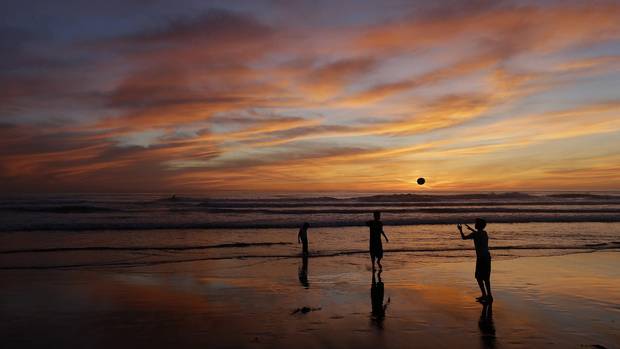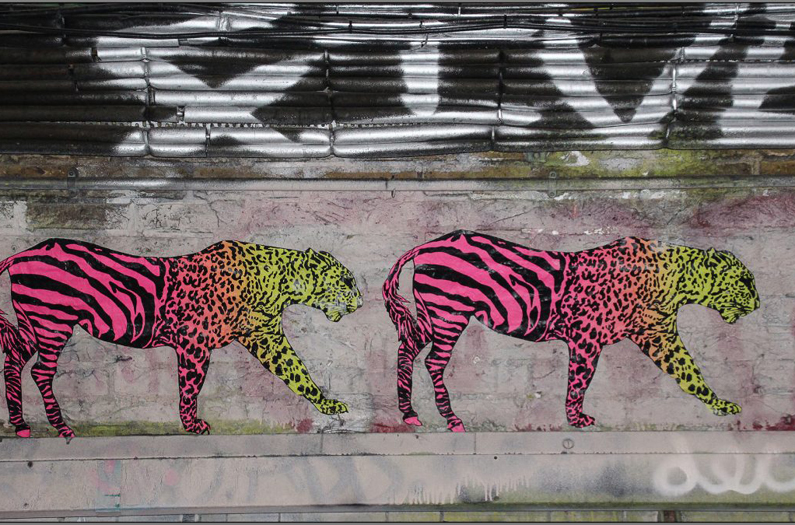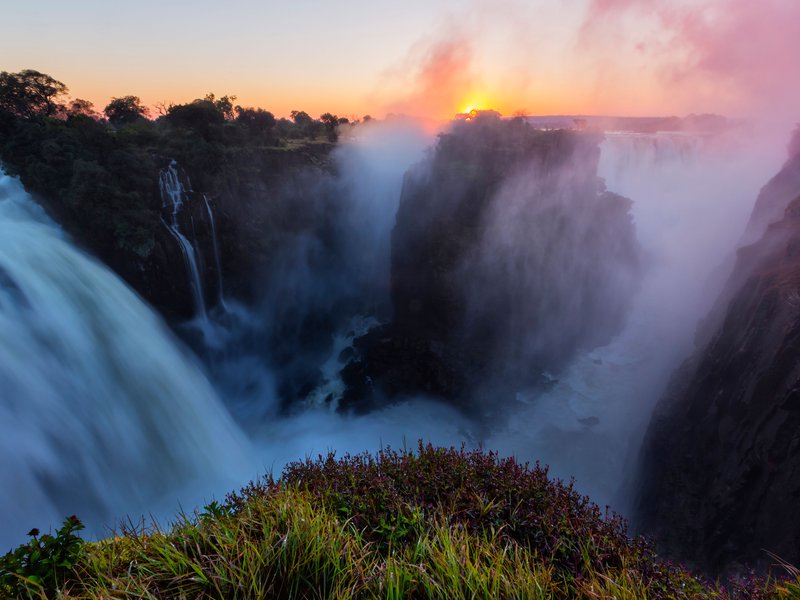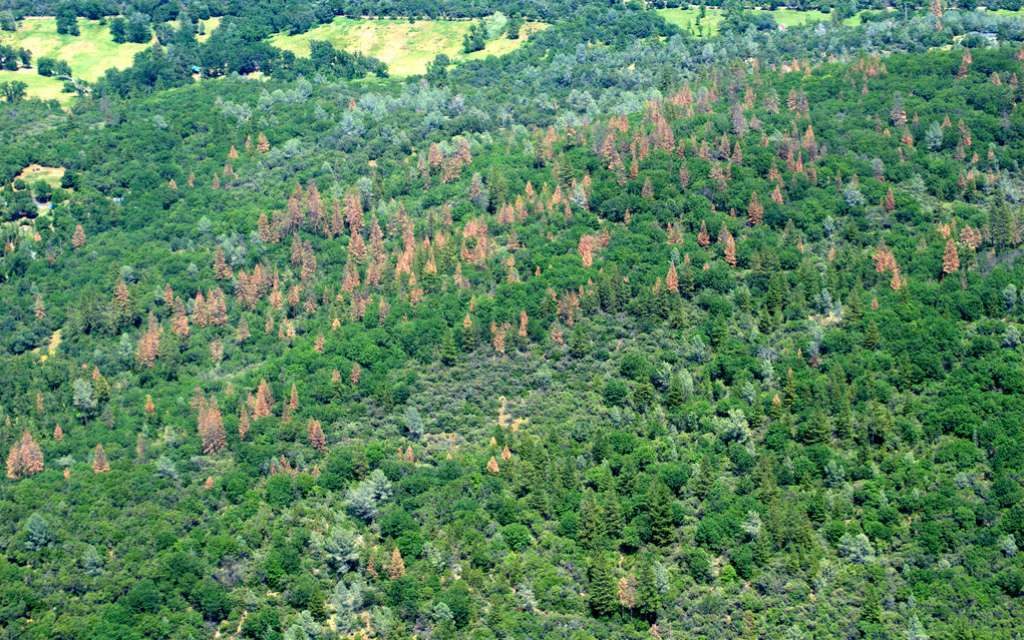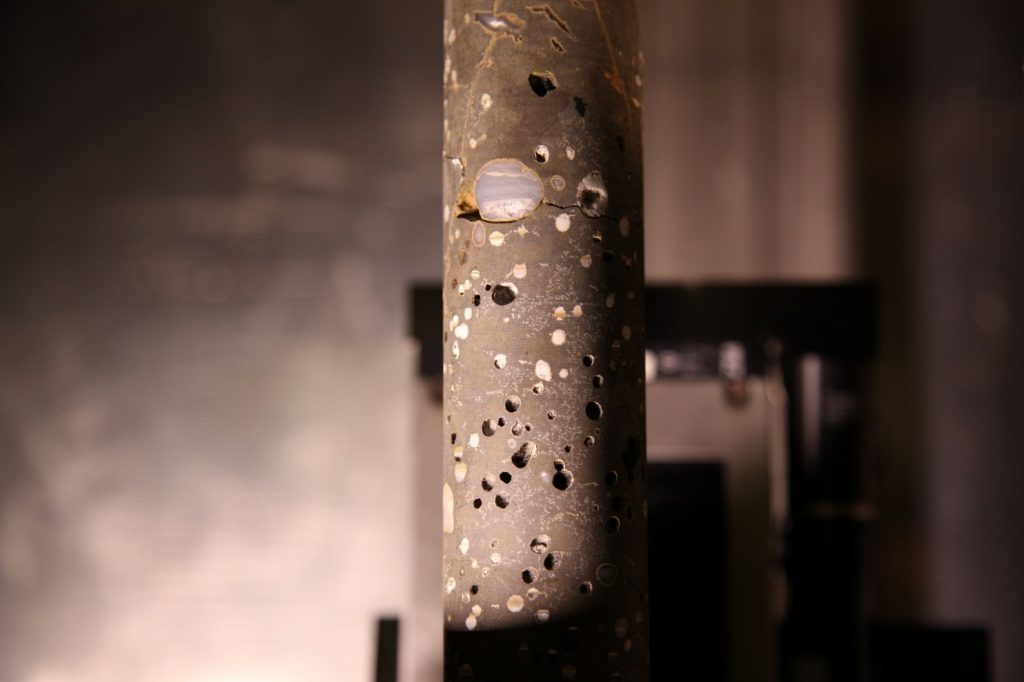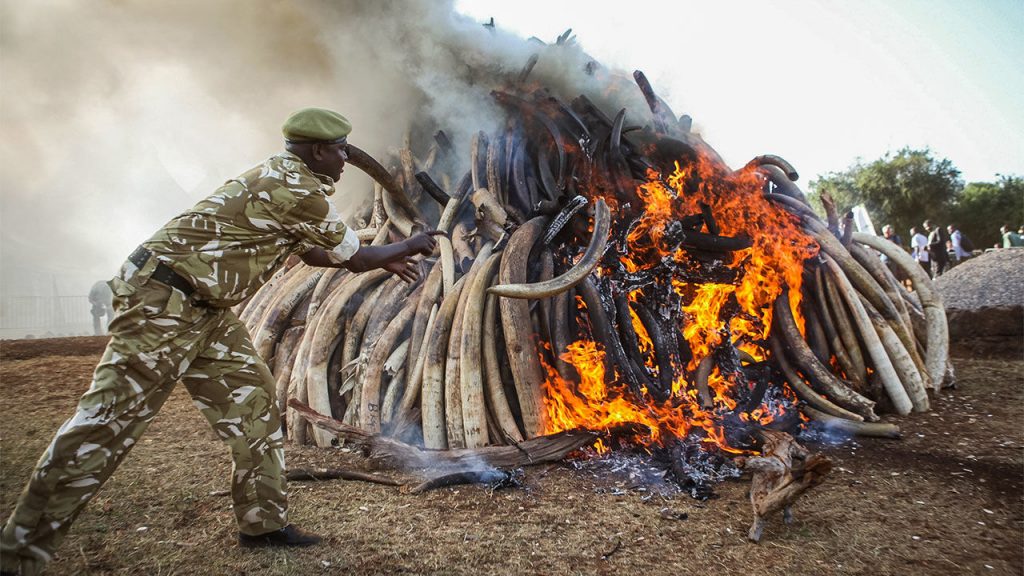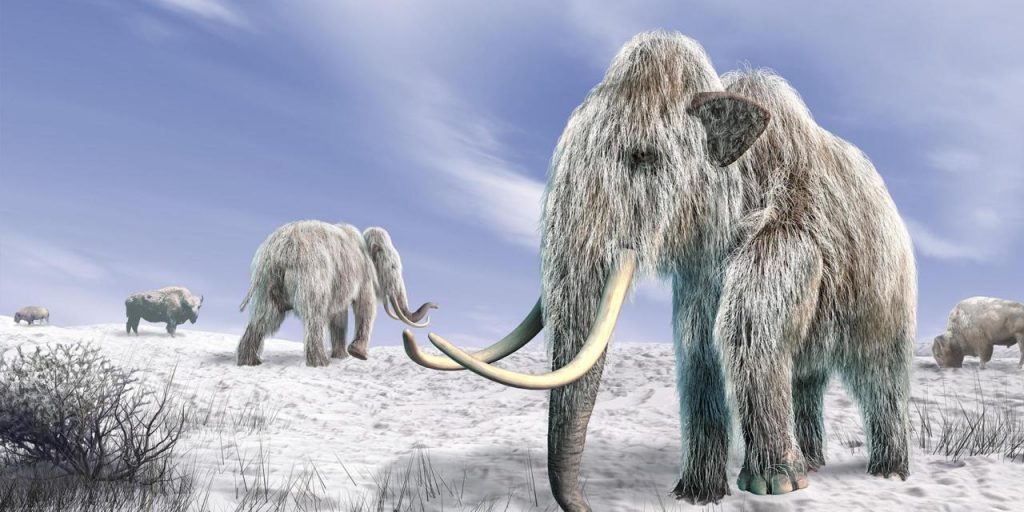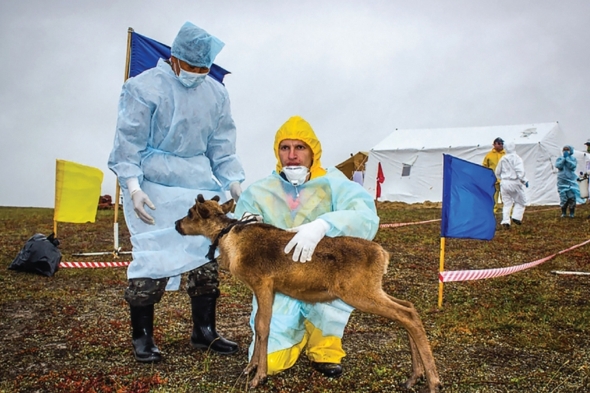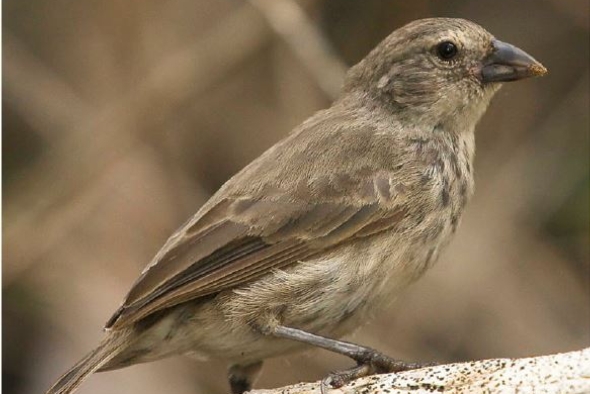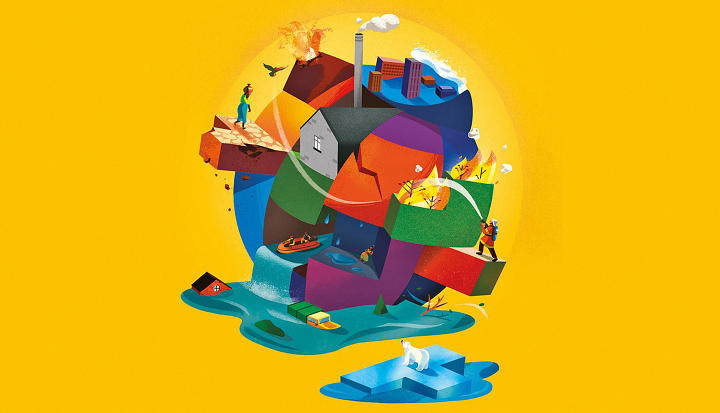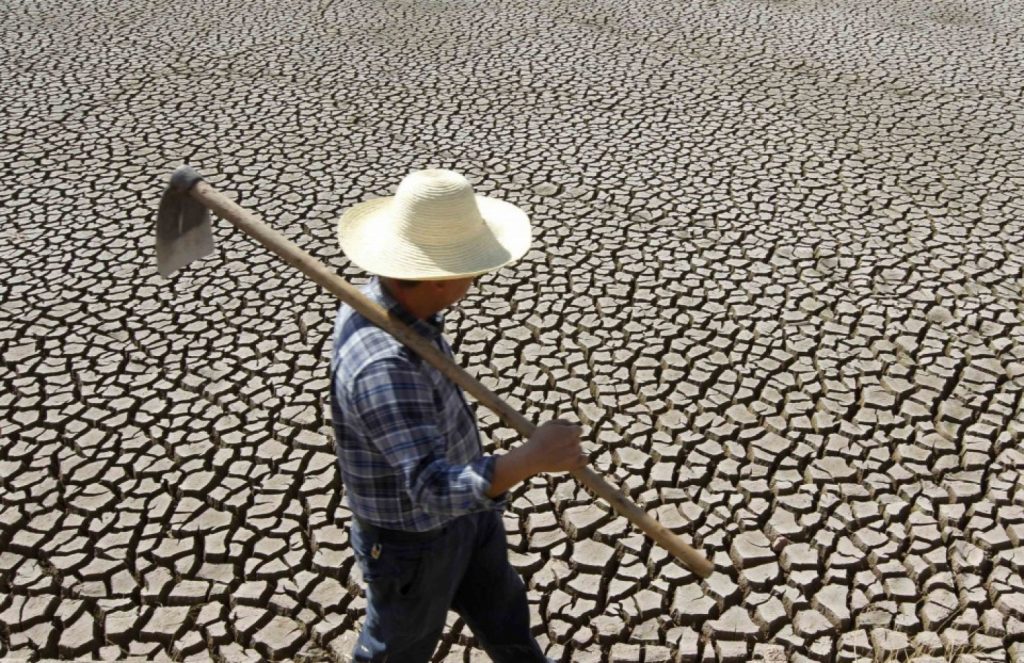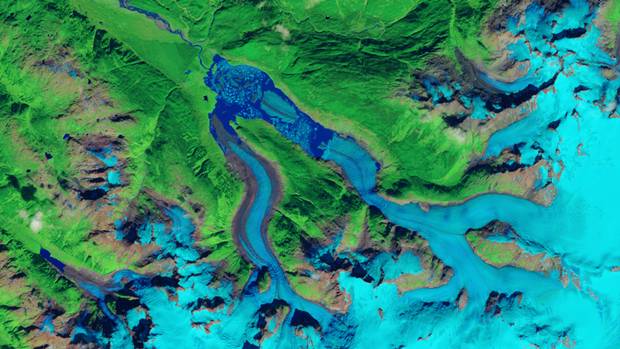Project Press
World temperatures hit new high for the third year in a row
By Alister Doyle | The Globe and Mail World temperatures hit a record high for the third year in a row in 2016, creeping closer to a ceiling set by the Paris climate change deal, with extremes including unprecedented heat in India and ice melt in the Arctic, scientists said on Wednesday. The findings, providing new…
Read MoreCities are the new laboratories of evolution
By Sarah DeWeerdt | Anthropocene Magazine Cities are driving rapid evolutionary changes to plant and animal species, according to a study published yesterday in the Proceedings of the National Academy of Sciences. Usually, we think of evolution as happening in remote, isolated, or pristine places—the Galapagos Islands, for example. But the new findings suggest that scientists can’t understand…
Read MoreWhy Should Humans Care if We’re Entering the Sixth Mass Extinction?
By Smithsonian.com | Smithsonian Magazine Sometime in the near geological future, the landscape of life on earth as we know it will be transformed. It’s a mass extinction, and it’s only happened five times before in Earth’s history. There have been severe ice ages, perplexing losses of oxygen from our oceans, massive volcanic eruptions, meteor impacts.…
Read More‘Unprecedented’: More than 100 million trees dead in California
By Michael Bodley | SFGate California’s lingering drought has pushed the number of dead trees across the state past 100 million, an ecological event experts are calling dangerous and unprecedented in underlining the heightened risk of wildfires fueled by bone-dry forests. In its latest aerial survey released Friday, the U.S. Forest Service said 62 million trees…
Read MoreThey may save us yet: Scientists found a way to turn our carbon emissions into rock
By Chris Mooney | The Washington Post Earlier this year, a project in Iceland reported an apparent breakthrough in the safe underground storage of the principal greenhouse gas, carbon dioxide — an option likely to be necessary if we’re to solve our global warming problem. The Carbfix project, run by a leading Icelandic producer of geothermal power, Reykjavik Energy,…
Read MoreGlobal ‘greening’ has slowed rise of CO2 in the atmosphere, study finds
By Damian Carrington | The Guardian A global “greening” of the planet has significantly slowed the rise of carbon dioxide in the atmosphere since the start of the century, according to new research. More plants have been growing due to higher CO2 levels in the air and warming temperatures that cut the CO2 emitted by plants…
Read MoreRecently killed elephants are fueling the ivory trade
By Virginia Morrell | Science Magazine The illegal trade in elephant ivory is being fueled almost entirely by recently killed African elephants, not by tusks leaked from old government stockpiles, as had long been suspected. That’s the conclusion of a new study, which relies on nuclear bomb tests carried out in the 1950s and ’60s to…
Read MoreSea Ice Shrinks in Step with Carbon Emissions
By Warren Cornwall | Science Magazine The jet fuel you burned on that flight from New York City to London? Say goodbye to 1 square meter of Arctic sea ice. Since at least 1960s, the shrinkage of the ice cap over the Arctic Ocean has advanced in lockstep with the amount of greenhouse gases humans have…
Read MoreWhat really happened to mammoths and other ice age giants
By Niki Rust | BBC Earth There might be as many as 10 million species of complex life on this planet today – a huge number. But add up all of the complex species that ever lived and some biologists think the grand total would be about five billion. The estimate leads to an astonishing conclusion:…
Read MoreAs Earth Warms, the Diseases That May Lie Within Permafrost Become a Bigger Worry
By Sara Goudarzi | Scientific American This past summer anthrax killed a 12-year-old boy in a remote part of Siberia. At least 20 other people, also from the Yamal Peninsula, were diagnosed with the potentially deadly disease after approximately 100 suspected cases were hospitalized. Additionally, more than 2,300 reindeer in the area died from the infection.…
Read MoreWildlife populations plunge almost 60 percent since 1970: WWF
By Alister Doyle | Reuters Worldwide populations of mammals, birds, fish, amphibians and reptiles have plunged by almost 60 percent since 1970 as human activities overwhelm the environment, the WWF conservation group said on Thursday. An index compiled with data from the Zoological Society of London (ZSL) to measure the abundance of biodiversity was down 58 percent…
Read MoreThe Mangrove Finch: An Extinction in Slow Motion
By John R. Platt | Scientific American One of Charles Darwin’s fabled finch species is slowly disappearing, even as conservationists work desperately to save it. This “slow-motion extinction,” as a newly published paper puts it, concerns the critically endangered mangrove finch (Camarhynchus heliobates). Native to the Galápagos Islands, the species has found itself plagued by invasive…
Read MoreUnderstand The World Better With This Illustrated User’s Guide To The Anthropocene
By Adele Peters | FastCo Exist Two decades ago, scientist James Lovelock imagined what the last book on earth should look like: a post-apocalyptic survival guide that explains the basics of the planet, why it collapsed, and how to avoid recreating the same mistakes. The idea morphed into something a little more helpful, a book we…
Read MoreUN: Global agriculture needs a ‘profound transformation’ to fight climate change and protect food security
By Chelsea Harvey | The Washington Post Climate change has already begun to affect the world’s food production, a new report from the United Nations warns — and unless significant action is taken, it could put millions more people at risk of hunger and poverty in the next few decades. It’s a message that’s been emphasized over and over…
Read MoreBreakage of monumental B.C. iceberg quietly sounds climate change alarm
By Mark Hume | The Globe and Mail A massive chunk of ice – thought to be the largest iceberg to ever break off a glacier in Canada – fell into a lake in British Columbia this summer and no one noticed until a U.S. scientist saw it on a NASA photo. Dr. Mauri Pelto, professor…
Read More
